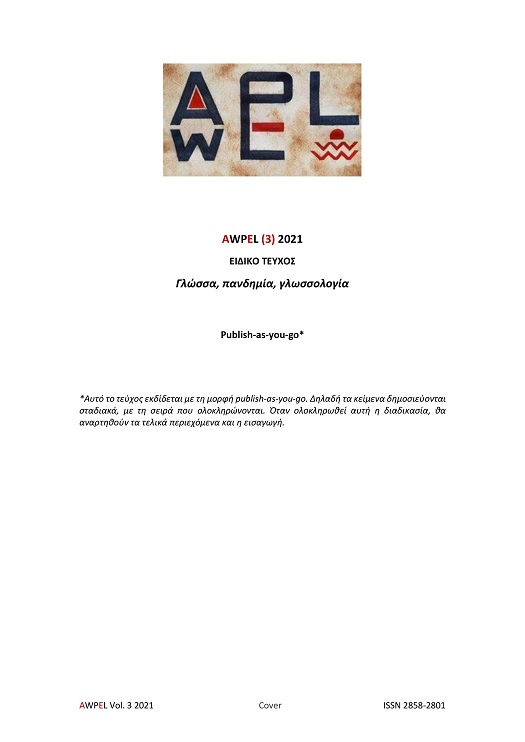Covid-19 and the Linguistic Landscape of Berlin
Abstract
The aim of this paper is to explore the relation between the Covid-19 pandemic and the linguistic landscape of Berlin. The approach builds on a dynamic perspective, which sees the semiotic landscape of a city as an arena of contestation between different social groups with various interests. Berlin constitutes an interesting research site, as it is known for its superdiversity, the co-existence of numerous subcultures, as well as its variety of cultural and political centres. This paper aims at studying the manifestation of the pandemic on the linguistic landscape while focusing on the intersection between language, space, politics, and activist discourse. The data were collected during the so-called “second wave” of the pandemic and consist of posters, advertisements, stencils, and banners. In the analysis both the sign and the environment in which it is positioned are taken into consideration. While Covid-19 is a global phenomenon, which is expected to affect the linguistic landscape of most urban conglomerates, the focus of this article is set on local features and their relation to the city’s profile.
Article Details
- Zitationsvorschlag
-
Panagiotatou, E. (2022). Covid-19 and the Linguistic Landscape of Berlin. Aegean Working Papers in Ethnographic Linguistics, 3, 159–175. Abgerufen von https://ejournals.epublishing.ekt.gr/index.php/awpel/article/view/29954
- Rubrik
- Articles

Dieses Werk steht unter der Lizenz Creative Commons Namensnennung 4.0 International.
Authors who publish with this journal agree to the following terms:
Authors retain copyright and grant the journal right of first publication with the work simultaneously licensed under a Creative Commons Attribution licence that allows others to share the work with an acknowledgement of the work's authorship and initial publication in this journal.
Authors are able to enter into separate, additional contractual arrangements for the non-exclusive distribution of the journal's published version of the work (e.g. post it to an institutional repository or publish it in a book), with an acknowledgement of its initial publication in this journal.
Authors are permitted and encouraged to post their work online (preferably in institutional repositories or on their website) prior to and during the submission process, as it can lead to productive exchanges, as well as earlier and greater citation of published work (See The Effect of Open Access).



